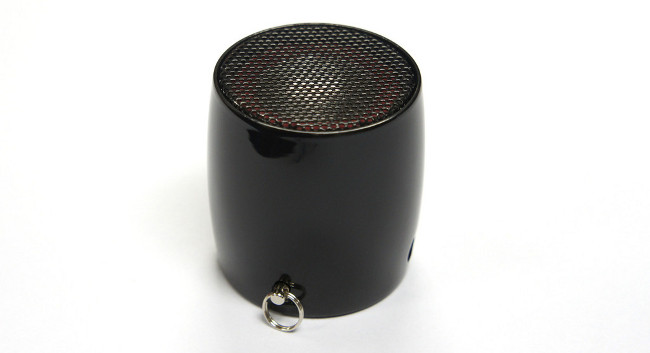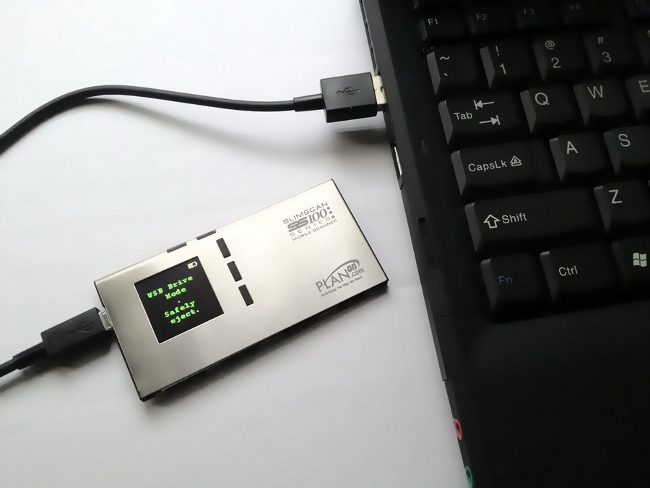The iPhone 5s
A look at gadget happenings, as testers of the new iPhone 5s claim its Touch ID sensor is not compatible with sweaty hands, Canon’s EOS-1D C achieves broadcast-quality standards, Dell launches a range of powerful new workstations and we take a look at some puny gadgets that pack a punch.
iPhone 5s Touch ID: don’t sweat it
All eyes were on the new smartphones from Apple this past week and receiving much of the attention was the Touch ID sensor on the iPhone 5s. This fingerprint scanner is meant to increase security for users but raised concerns that this data could be stored on the phone and then accessed by others.
However, Apple assured that the data is encrypted in the phone’s processor and, even if this was hacked, it would be difficult to reverse engineer the fingerprint. Also, third-party apps will not be able to make use of Touch ID, ensuring that Apple can keep a tight hold on this information.
One cause for concern, though, might be the sensor’s sensitivity. According to an Apple spokesperson speaking to The Wall Street Journal’s Digits blog, company testers say it will not always respond to fingertips that are compromised by sweat, lotion or other liquids. It also has difficulty reading some fingerprints and it’s thought this could cause problems for those with fingertip scarring.
That said, users that opt to use the Touch ID sensor to gain access to the iPhone 5s will also have to create a back-up passcode that will be required if the phone is rebooted or hasn’t been unlocked for 48 hours.
Canon EOS-1D C reaches HD Tier 1standards
Canon’s EOS-1D C, a DSLR camera released earlier this year, has come out on top following tests based on the European Broadcasting Union standards. Results from these tests found that the EOS-1D C is capable of producing images of high enough quality for use in broadcast production, making it the first-ever DSLR to comply with the HD Tier 1 specification.
The EOS-1D C was designed with video capture at the forefront. As well as advanced low-light performance, film-like dynamic range, and a 61-point AF system, the camera is capable of internal 4K (4,096 x 2,160) video recording and 1080p (full-HD) at 50fps or 60fps. It packs an 18MP full-frame CMOS sensor and dual Digic 5+ processors in a compact and lightweight structure based on the design of the EOS-1D X. Combined with Canon’s selection of more than 75 EF lenses, it offers a wide range of creative options for videographers.
Dell’s powerful new workstations
This past week, Dell unveiled a range of powerful mobile and tower workstations to serve businesses with a need for speed in terms of completing computer-intensive processes, such as rendering complex 3D designs.
The Dell Precision M4800 and M6800 mobile workstations offer a 15.6-inch Quad HD+ IGZO panel with higher resolution than a MacBook Pro with Retina display. There’s also a 17.3-inch display option with 10-finger Wacom multi-touch. Other options for this range include WiGig wireless docking, up to 16GB of 1,866MHz memory, fourth-generation Intel Core i5 and i7 processor options up to Core i7 Extreme Edition, and AMD FirePro and Nvidia Quadro professional graphics with up to 8GB graphics memory on the M6800 configured with the Nvidia Quadro K5100M. What’s more, these mobile workhorses also claim all-day battery life.
Among the tower models is the Dell Precision T3610 with advanced single Intel Xeon CPU performance, the T5610 high-power dual-socket Intel Xeon processor workstation, and the T7610, the most powerful in the range with up to 512GB system memory and power for up to three high-end graphics cards, including up to two Nvidia Quadro K6000s cards (from October).
Designed for scientific analysis, professional engineering and complex 3D modelling, these new workstations became available worldwide on 12 September with prices ranging from €2,013 to €3,570, but prices on Dell.com are currently a lot more forgiving with significant discounts.
Gigabyte’s tiny gaming PC
While phablets are becoming increasingly common in the smartphone market, some tech-makers are still working on shrinking down powerful devices. Take the Gigabyte Brix II, for example. Measuring just 4.5 inches on a side, this basic gaming PC offers Haswell processors and 65W Iris Pro graphic processors from Intel (which are reportedly comparable to Nvidia’s GeForce GT 650M discrete graphics chip) among its customisation options, making this small system powerful enough to support 1080p gaming.

The Brix II’s range of ports include HDMI and Mini DisplayPort output, four USB 3.0 ports, Gigabit Ethernet, and a 3.5mm audio jack. The system also has Wi-Fi and Bluetooth connectivity built in, but buyers will need to supply their own memory, hard drive and operating system.
With prices ranging from US$499, the Gigabyte Brix II is expected to start shipping this December.
World’s smallest portable Bluetooth speaker
Even smaller again is the e-Atom portable Bluetooth speaker from Bitmore. Standing just 3.8cm tall, this tiny speaker has been fitted with a new generation of amplifiers to boost the sound and ensure it has depth and great bass.

It’s so small it can be carried around as a keyring and Bluetooth connectivity means it can pair with most smartphones, MP3 players, laptops, PCs and tablets. However, this will probably just lead to more noise from teenagers blasting music down the back of the bus, especially with an introductory price as low as stg£19.99.
Credit card-sized scanner
Finally, our smallest gadget in this week’s round-up is PlanOn’s SlimScan, a credit card-sized portable full-colour scanner. This super-compact device fits into a standard wallet and can be used to scan and organise receipts, business cards, notes, photos, articles or other printed materials on the fly.

In all, this full-featured high-resolution scanner measures just 2 x 3.1 x 0.12 inches. Its MSRP is US$139.99 from leading retailers and PlanOn.
Stay informed – get daily updates on the latest happenings in technology directly to your inbox.